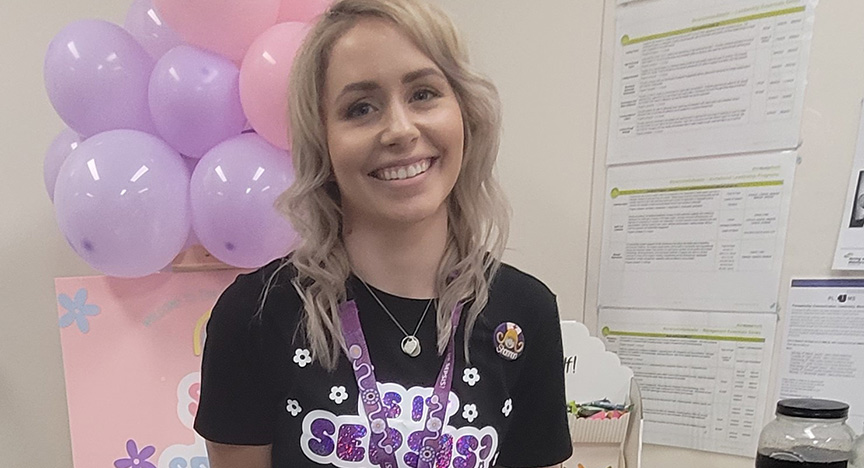
Shannon Pamenter is a sepsis superstar at Ipswich Hospital, encouraging staff and families in our children’s ward to know the signs and ask: Could it be SEPSIS?
Sepsis is the body's extreme response to an infection. It causes our immune system to attack our organs and tissues instead of fighting the infection. This can cause organ failure, damage to limbs, and even death.
Now a registered nurse, she said her passion for sepsis awareness began after her experience as a student nurse working in the Ipswich Hospital Paediatric Emergency Department.
"We had a young child come in who was pale and lethargic, and I saw how the nurse quickly identified they may have sepsis and raised their concerns with the treating team," she said.
Sepsis is a true medical emergency because people with sepsis can get sicker very quickly.
If sepsis is diagnosed early, treatment can significantly improve the health outcomes for patients.
"The ED team arranged blood tests and quickly gave the patient antibiotics to kill the bacteria in the child’s blood.
"Within a few hours, our patient began looking a lot better. It was incredible," she said.
"What excited me the most was that we began treatment for sepsis even before the test results confirmed our hunch."
Luckily, sepsis is rare, but the early signs can be mistaken for a skin infection or a virus.
Parents and carers are the experts when it comes to their child.
If your child is getting sicker and you’re worried, ask the doctor: 'Could this be sepsis?
Shannon has written a research paper on the early diagnosis of sepsis in children and is a member of the Statewide Paediatric Sepsis Advocacy Network.
Know the signs, which may include:
- fast breathing or long pauses between breaths
- blotchy, pale or blue skin
- being cold to touch
- a rash that does not fade when pressed
- being drowsy, or difficult to wake up, or confused
- being floppy
- fits or convulsions
- pain or restlessness
Read more info on Sepsis: https://www.childrens.health.qld.gov.au/sepsis/